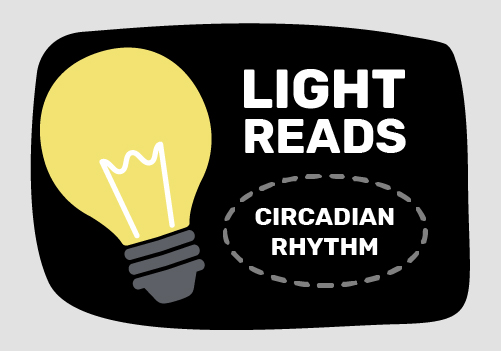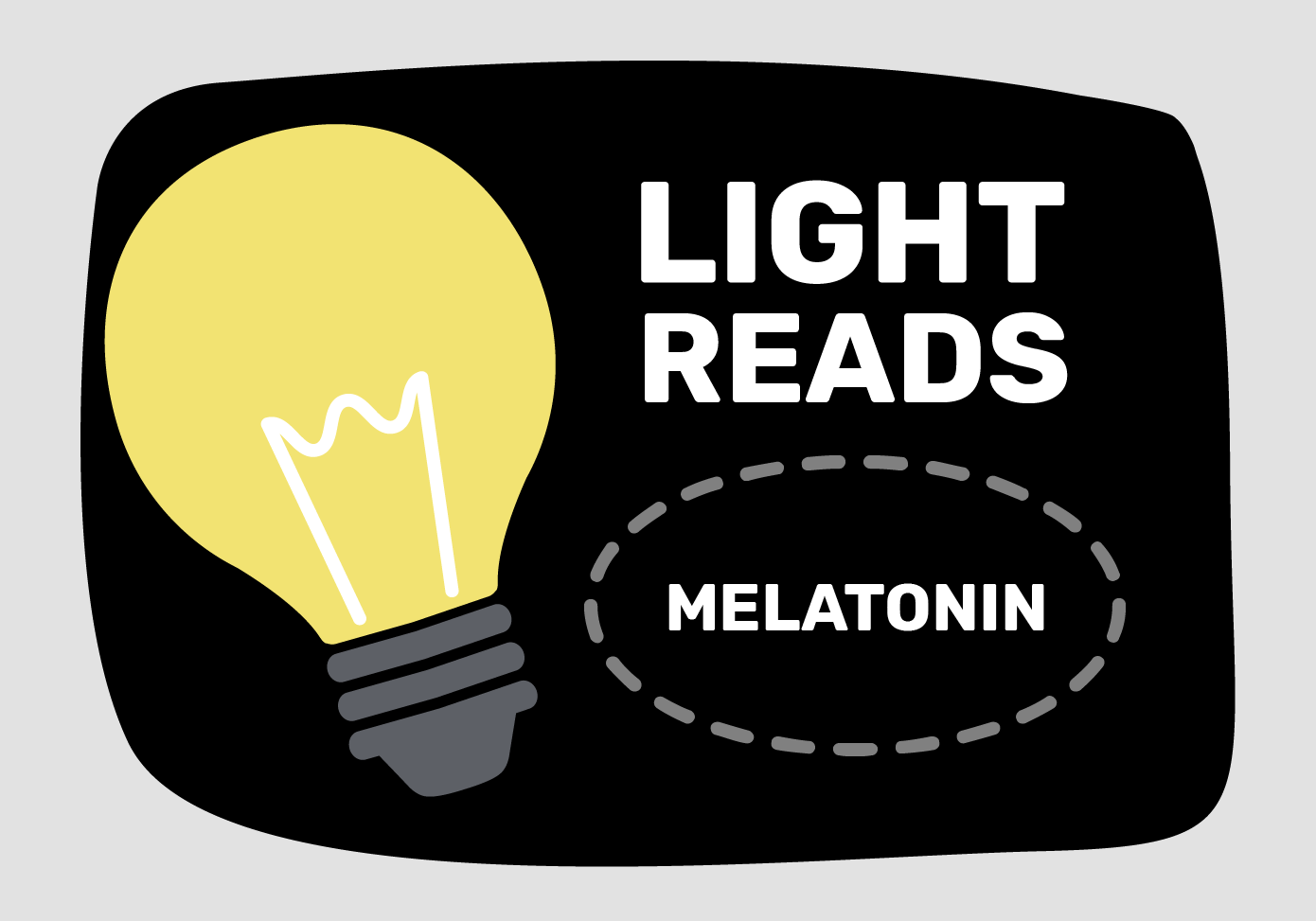
Fancy a bit of “light” reading?
Presenting ‘Light Reads’: 5-10 minute reads that will teach you something about the science of light. Have a read during your tea break and impress your colleagues with your knowledge of all things circadian rhythm…
What is circadian rhythm?
Circadian rhythm is essentially the body’s internal clock. It’s an approximately 24-hour cycle that affects different aspects of our bodies from hormone levels to behaviour. Our circadian rhythm plays a really important role in rest; it helps our brain recognise when it’s time to be alert and awake, and when it’s time to feel sleepy (also known as the sleep-wake cycle).
What does light have to do with our body clock?
Circadian rhythm is controlled by the hypothalamus, but other environmental factors like light levels also impact it. When it’s dark at night, your eyes send a signal to the brain to feel tired, which then triggers the release of melatonin, which makes your body tired and ready for sleep. When it’s lighter, like in the daytime, your brain understands it is time to be awake and melatonin levels fall, causing you to feel alert. This is known as the light-dark cycle.
Why is our circadian rhythm important?
Our circadian rhythm plays a part in sleep, hunger, metabolism, fertility and mood, to name but a few physical states.
Sleep alone is a pretty vital part of life. It enables our bodies to rest and repair, regulates our hormones and helps to contribute to a healthy immune system. Although everyone has slightly different rhythms and needs a slightly different amount of shut-eye, keeping a consistent routine is crucial to having a restful, restorative sleep.
Our circadian rhythm tells our brain when it’s time to rest, which causes the body to prepare for sleep. If this rhythm is disrupted it can play havoc with our sleep schedule, causing all sorts of ill effects.
What can disrupt our natural rhythm?
Anything that messes with our natural light-dark cycle can negatively affect our sleep-wake cycles and therefore our circadian rhythm. Modern life contains a long list of potential disruptions, such as artificial light, light from electronic devices, shift work, young children, and jet lag. Even meal times and certain medications can affect circadian rhythm.
What can we do to reset a disrupted circadian rhythm?
The most effective tool for resetting your body clock is light. Natural light and artificial light that simulates daylight can both help you to feel more alert and ‘trick’ your brain into thinking you’re in the ‘wake’ part of your sleep-wake cycle. Similarly, relaxing in a dark room or somewhere with low lighting can trigger your brain to increase your melatonin levels, encouraging sleepiness.

Cobalt Spectrum LED mood lighting for aircraft cabins can help to lessen the effects of jet lag by adjusting light levels to better suit the circadian rhythms of passengers on long-haul flights. Read more >


